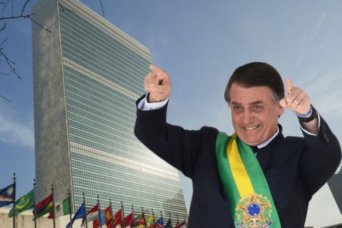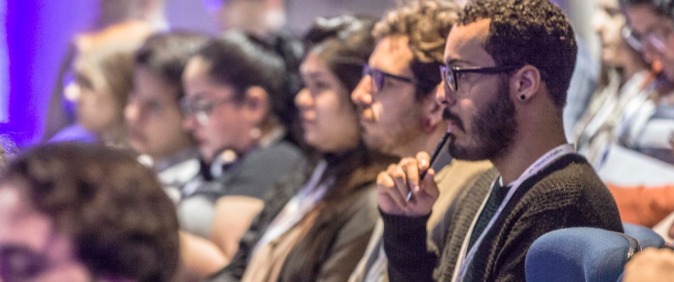- About
- Topics
- Picks
- Audio
- Story
- In-Depth
- Opinion
- News
- Donate
- Signup for our newsletterOur Editors' Best Picks.Send
Read, Debate: Engage.
| topic: | Good Governance |
|---|---|
| located: | Brazil |
| editor: | Ellen Nemitz |
Jair Bolsonaro, the president of Brazil, has completed his first of four-year mandate. While 2019 began with good news for him – elected with a solid base of supporters, the same may not be true for 2020. Only 41 per cent of citizens interviewed approve his way of leading the country – in April 2019 the index was 51 per cent.
These numbers reflect a slow decline in Bolsonaro’s clan. In one year, there were several investigations for corruption. Although he affirmed in a Christmas message that the year ended without corruption cases in his government, his own son, Flavio Bolsonaro, is being investigated by suspected cash transactions, indicating that he used to receive a part of public employees' salaries.
In a year of public discussions and polemic statements, the president also lost his support base. Due to different reasons, politicians of the Social Liberal Party (PSL, in Portuguese) – the conservative party with which Bolsonaro was elected – have begun to criticize his decisions (the deputy who went against the nomination of Eduardo Bolsonaro for the United States Embassy was kicked out of the party) and then the leader of the government in Congress, deputy Joice Hasselman, was dismissed of the position after disagreements.
In November, the relationship between the far-right president and his conservative party was certainly over. Bolsonaro decided to create a new party – Alliance for Brazil – and once more got into a polemic: the desired electoral number is 38 (in allusion to gun’s calibre) and the logo was made of bullet cartridge. Many critics highlighted the violence allusion — like the German journalist Gerd Wenzel, who compared it with Nazi group SS.
While seeking for the next 500 thousand signatures necessary to a party to be recognized, Bolsonaro continues to witnessing setbacks in his plans. After many changes to the discussion, he signed on December 24 the final version of the Anti Crime Bill, a project presented by the Minister of Justice and former judge Sergio Moro.
Its main objective was to strengthen the fight against crime, but some points crucial for Moro were not approved: the possibility of not punishing crimes committed by “fear, surprise or big emotional feeling”, which was being condemned as it could create a “license to kill”, is out of the final bill.
Moreover, Congress is displeasing Bolsonaro and Moro by introducing the "judge of guarantees”, a new role in juridical trials responsible for supervising investigations, making sure the process is legal and the defendant rights are respected, as well as for giving the final sentence. On Twitter, Moro criticized this addition, but still said: “it is not the dream bill, but it has advances”.
Advances are, no doubt, what Brazilians expect for 2020. The country is slowly moving towards reducing its still high rates of unemployment, population suffering from high prices of basics such as food, the devaluation of local currency. Real is also impacting on inflation and dealing to get 13.5 million people out of extreme poverty, according to the Brazilian Institute of Geography and Statistics' data from 2018, is a big and urgent challenge.
Even though public security is a very important point to be the focus of the government – and last year registered a 22 percent drop of violent murders from January to August, indeed – Brazilians hope for a 2020 with more economic opportunities - less corruption.

